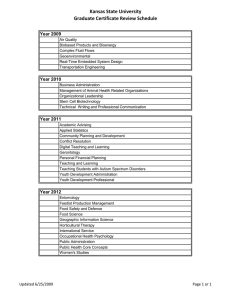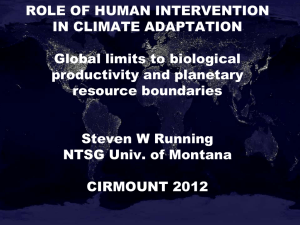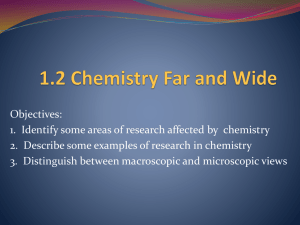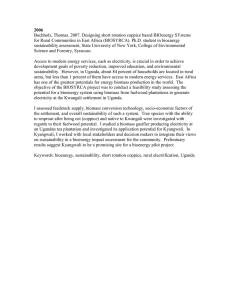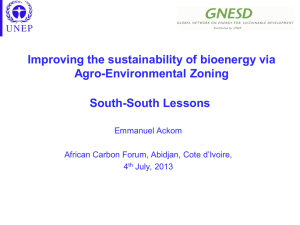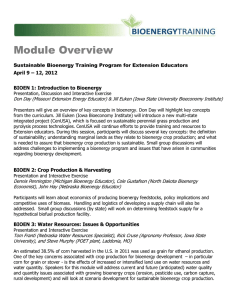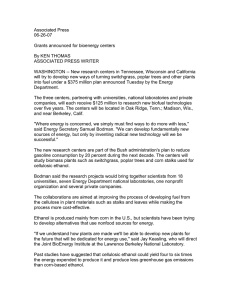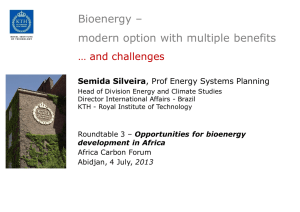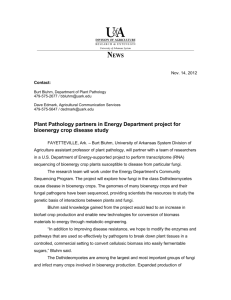Use of Positron-Emission Tomography (PET) for Functional Phenotyping in Plant Biotechnology Research
advertisement
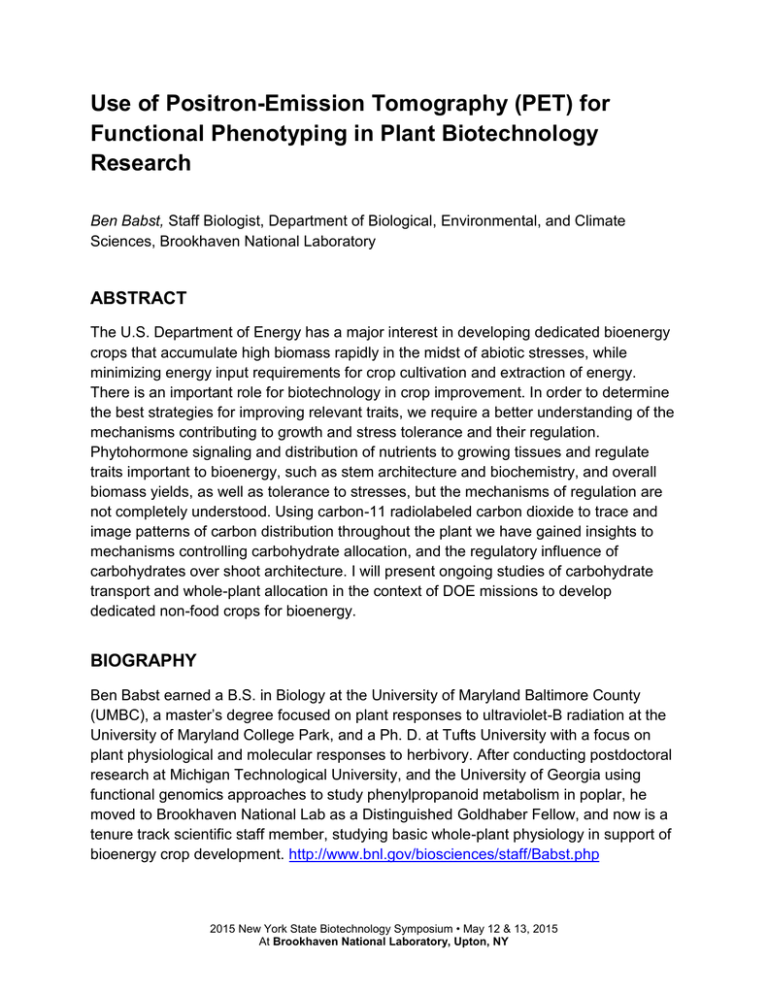
Use of Positron-Emission Tomography (PET) for Functional Phenotyping in Plant Biotechnology Research Ben Babst, Staff Biologist, Department of Biological, Environmental, and Climate Sciences, Brookhaven National Laboratory ABSTRACT The U.S. Department of Energy has a major interest in developing dedicated bioenergy crops that accumulate high biomass rapidly in the midst of abiotic stresses, while minimizing energy input requirements for crop cultivation and extraction of energy. There is an important role for biotechnology in crop improvement. In order to determine the best strategies for improving relevant traits, we require a better understanding of the mechanisms contributing to growth and stress tolerance and their regulation. Phytohormone signaling and distribution of nutrients to growing tissues and regulate traits important to bioenergy, such as stem architecture and biochemistry, and overall biomass yields, as well as tolerance to stresses, but the mechanisms of regulation are not completely understood. Using carbon-11 radiolabeled carbon dioxide to trace and image patterns of carbon distribution throughout the plant we have gained insights to mechanisms controlling carbohydrate allocation, and the regulatory influence of carbohydrates over shoot architecture. I will present ongoing studies of carbohydrate transport and whole-plant allocation in the context of DOE missions to develop dedicated non-food crops for bioenergy. BIOGRAPHY Ben Babst earned a B.S. in Biology at the University of Maryland Baltimore County (UMBC), a master’s degree focused on plant responses to ultraviolet-B radiation at the University of Maryland College Park, and a Ph. D. at Tufts University with a focus on plant physiological and molecular responses to herbivory. After conducting postdoctoral research at Michigan Technological University, and the University of Georgia using functional genomics approaches to study phenylpropanoid metabolism in poplar, he moved to Brookhaven National Lab as a Distinguished Goldhaber Fellow, and now is a tenure track scientific staff member, studying basic whole-plant physiology in support of bioenergy crop development. http://www.bnl.gov/biosciences/staff/Babst.php 2015 New York State Biotechnology Symposium • May 12 & 13, 2015 At Brookhaven National Laboratory, Upton, NY
